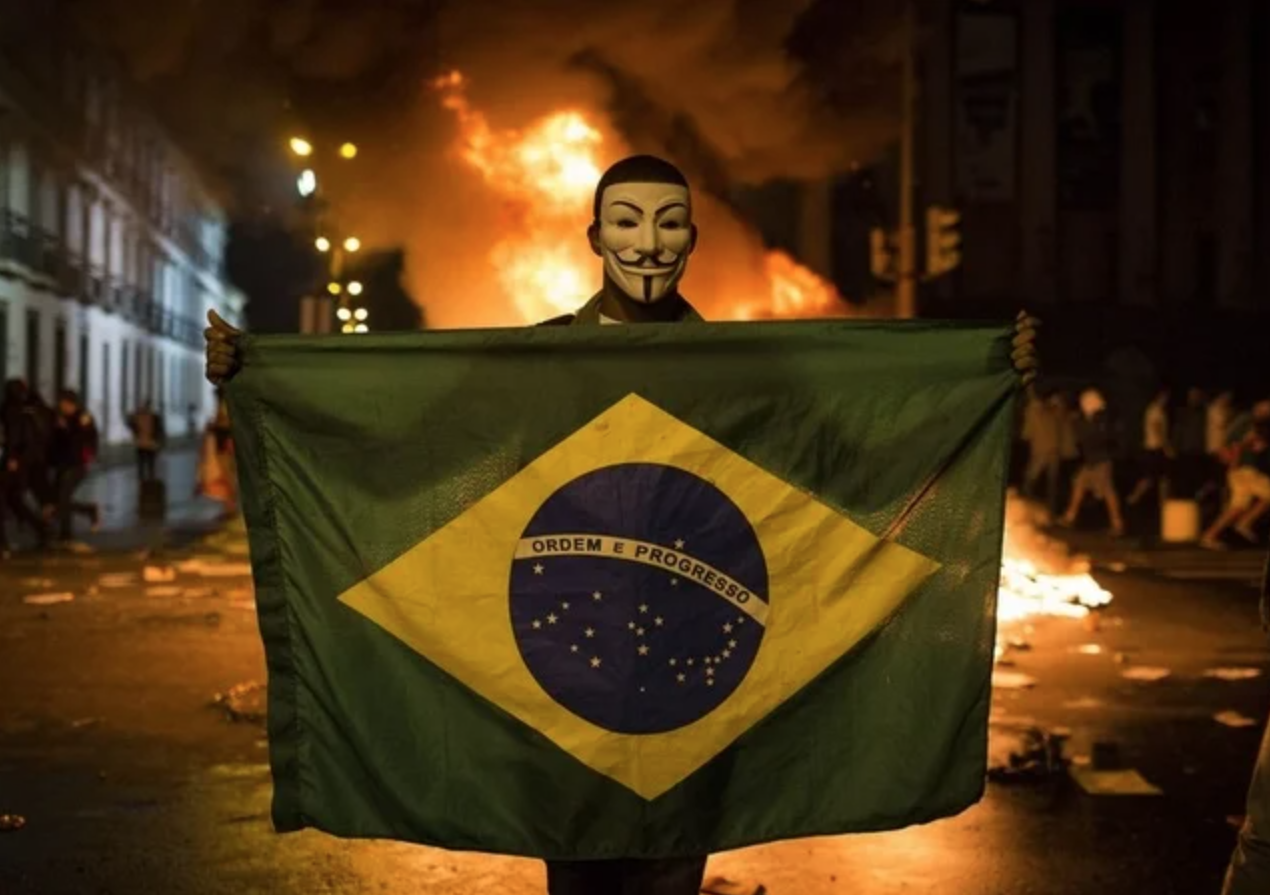The massive demonstrations of June 2013 in Brazil are 10 years old and many find it hard to understand them. Some, out of self-interest and political blindness, persist in absurd theses about their openness to fascism and alleged hybrid wars. Others try to define the bases of these manifestations on the basis of social classes, in our everyday Marxism, advocated even by a good number of liberal analysts. Others correctly point out the plurality of points of view and demands that were present in the social networks and in the streets. Finally, the popular mobilizations before and after that month broaden the focus of analysis. June 2013 was indeed many things. What is often missing is a political interpretation of the phenomenon, one of those rare moments in history when the masses set in motion autonomously.
Liberal democracy is intrinsically a mixed regime. It is democratic, but also oligarchic. Some, in its early days, wanted to conceive of it as run by an elective “aristocracy of spirit”. Others stressed how a higher layer of politicians would have the task of taming the democratic character of the system. Initially averse to democracy, liberalism was democratized throughout the twentieth century. Paradoxically, this occurred largely through large organizations, mass parties, unions, and associations, controlled by internal oligarchies, which nevertheless channeled the popular desire for participation, relying on the vote, but beyond it. Centripetal social forces, based on traditional identities or material facts, whether religion or belonging to a large and concentrated working class, facilitated the construction of this type of organization.
Brazil participated in this process, in which democracy was democratized without losing its fundamental oligarchic elements. In the post-military regime, democracy deepened, belatedly in relation to other countries, evidencing, on the other hand, a much more oligarchic character of the system.
Since the 1970s, there has been a sharp decline in the democratic element of democracy, with the nationalization of political parties and a progressive closure of the political system. Centripetal forces also began to dissolve, with changes in the labor world that made it more fluid and the pluralization of social, religious, gender, etc. identities. Centrifugal forces have come to predominate. The paradoxical and virtuous connection between large organizations and popular participation was lost. Parties and politicians paid less and less attention to the population, which feels increasingly excluded and sees politicians more and more as self-interested agents. Brazil continued in the same direction, aggravated by the previous problems.
In Brazilian history, that of 2013 was the great plebeian revolt. It was also simultaneous to others that erupted around the world, putting the political system radically in check. This system was then consumed by infighting and had to face the onslaught of the judiciary. But it gradually recovered and created mechanisms to block any threat to its reproduction. It has become even more oligarchic, as evidenced by the apotheosis of the physiological “Centrão” (the great center political party).
Despite its harsh and exclusionary oligarchic characteristics, in which the dominant part of the left has long been deeply imbricated, albeit as the weakest wing, the Brazilian political system is liberal democratic, with room for popular participation and influence. Bolsonarism, following the example of the military dictatorship, wanted to maintain its oligarchic core and combine it with the dictatorship of a single actor, supported by the Armed Forces. It failed, but the threat of de-democratization hangs over us.
It is up to the democratic forces to become aware that only more democracy can neutralize the regressive tendencies and the tares of oligarchization. That is why it is so important to look at the legacy of 2013 from a positive perspective. For the political oligarchy, the opposite is of course true. However, only to its own detriment can the left reject the plebification of politics and ignore the need to reinvent the forces of participation and its own organization to open one more way to the process of political modernity democratization. A difficult task, but an indispensable one.
*Translated from Spanish by Janaína Ruviaro da Silva











